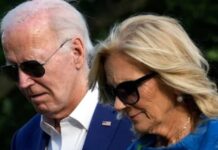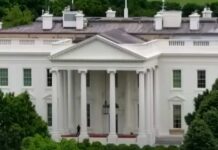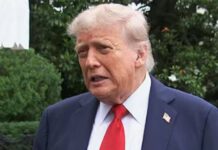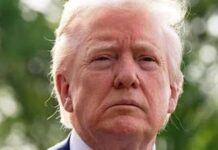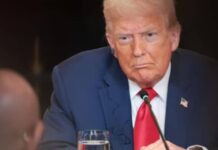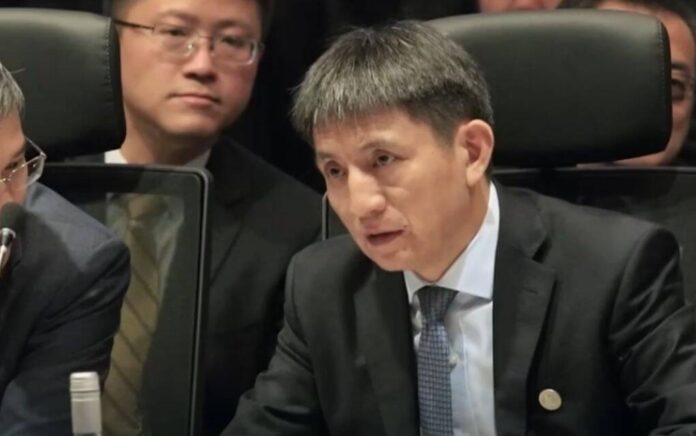
Trump and the Chinese Communists are in a decade-defining battle. Whoever wins will set the stage in the struggle for influence.
But now China just threw a wrench in Trump’s plans that threatens to ruin everything.
China Warns of Retaliation Amid U.S. Trade Push
China issued a stern warning on April 21, 2025, vowing to take “countermeasures” against any nation that strikes trade deals with the United States at the expense of Beijing’s interests.
The statement from the Chinese Ministry of Commerce comes as the Trump administration intensifies its tariff-driven trade negotiations, prioritizing American economic interests. With Vice President JD Vance set to meet Indian Prime Minister Narendra Modi in New Delhi this week to discuss a potential bilateral trade deal, China’s rhetoric underscores rising tensions in global trade dynamics.
“It should be pointed out in particular that China firmly opposes any party reaching a deal at the expense of China’s interests,” the Ministry declared, adding, “If this happens, China will never accept it and will resolutely take countermeasures in a reciprocal manner.”
Trump’s Tariff Strategy Sparks Global Negotiations
The Trump administration’s aggressive trade policies have reshaped international commerce, with President Trump freezing tariffs at 10% for most countries for 90 days to encourage negotiations, as announced earlier this month.
However, tariffs on Chinese goods have surged to 145%, prompting China to retaliate with a 125% tariff on U.S. imports. A Chinese Ministry of Commerce spokesman criticized the U.S. approach, stating, “The United States has abused tariffs on all its trading partners under the banner of so-called ‘reciprocity,’ while at the same time forcing all parties to start so-called ‘reciprocal tariff negotiations’ with it.”
Trump, undeterred, emphasized America’s resolve on Sunday, saying, “It’s good to see that the World knows we are serious, because WE ARE! They must right the wrongs of decades of abuse, but it won’t be easy for them.”
China Counters with Global Alliances
As the U.S. forges new trade agreements, with roughly 130 countries engaging in talks, China is actively seeking to bolster its own alliances. Chinese President Xi Jinping has recently courted Vietnam and Malaysia, urging them to defend “an open and cooperative international environment,” according to The New York Times.
Beijing has also reached out to Japan, South Korea, and the European Union to counter the impact of Trump’s tariffs. The Chinese government’s defiant stance was clear in its statement: “Appeasement cannot bring peace, and compromise cannot be respected.”
China vowed to fight the trade war “to the end,” signaling a prolonged economic standoff with the U.S. while warning other nations against aligning too closely with Washington.
U.S. Prioritizes Economic Sovereignty
The Trump administration’s trade strategy is driven by a commitment to rebuild American wealth and establish “true reciprocity” in global commerce. Trump’s call for nations to “Come to America, and build in America!” reflects a broader push to incentivize domestic investment while correcting perceived trade imbalances.
Last week, Trump joined top trade advisers in Washington, D.C., to meet with Japanese leaders, part of a flurry of negotiations aimed at securing favorable terms for the U.S. The White House reported that global leaders and business executives are seeking relief from tariffs, which Trump views as leverage to address “decades of abuse.” The upcoming Vance-Modi meeting in India, a key economic rival to China, could further escalate tensions if a deal undermines Beijing’s interests.
Escalating Trade War Shapes Global Dynamics
China’s threat of “reciprocal” countermeasures highlights the high stakes of the ongoing U.S.-China trade war, with ripple effects across the global economy. While the U.S. pursues deals to strengthen its economic position, China’s outreach to other tariff-hit nations aims to create a counterbloc resistant to American pressure. The Chinese Ministry of Commerce underscored Beijing’s resolve, stating, “China is determined and capable of safeguarding its own rights and interests.”
As negotiations unfold, the Trump administration’s focus on American economic sovereignty clashes with China’s push for influence, setting the stage for a contentious reshaping of international trade relationships. The outcome of these talks, particularly high-profile meetings like the one in New Delhi, will likely influence whether global trade tilts toward cooperation or further confrontation.


